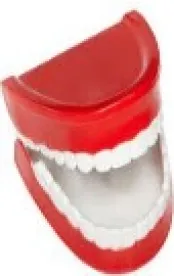Dental claims may be rare, but they are one of the most expensive types of workers comp claims.
Dental injuries may be less common than other types of workers compensation cases, but these claims present significant challenges, complications and costs. Given the infrequency with which these injuries occur, many claims professionals have limited knowledge of dental terminology, coding and billing procedures. And many organizations lack protocols and guidelines on how to mange these claims. Unlike other types of services, such as X-rays or MRIs, which may only be required once or twice during the life of a claim, the average dental claim requires 17 dental provider visits.
Any trauma that impacts an employee from the neck up is likely to involve a dental injury. For example, dental trauma may occur as a result of car accidents, workplace violence, construction or manufacturing accidents, slips and falls, or falling objects. If dental claims are not properly managed, they can hurt the claim's outcome, delaying the injured worker's recovery and adding unnecessary -- and usually hefty -- costs.
Risk managers historically have relied on traditional preferred provider organizations (PPOs) to treat dental injuries, but these claims require a more specialized approach. Risk managers must be sure that their network is leveraging dental management strategies to manage costs and avoid unnecessary services.
Finding a dentist who has experience in workers compensation and coordinating the right specialists are important, but dental injuries also require in-depth clinical expertise to manage claims throughout their life cycle. Risk managers must consider the following guidelines to ensure their provider network will properly manage dental claims.
Locating Dentists
Traditional workers compensation networks have not focused on recruiting dentists. Finding a dentist who understands and is willing to work within the workers comp system can be challenging. A network should not only recruit dentists but also help them navigate the system with appropriate forms and procedures. With this guidance, dentists are more likely to accept work-related injury referrals.
Appropriate Dental Treatment
By nature, dentists are accustomed to treating the whole mouth, which can drive up costs when services treat ailments unrelated to the injury the claim is intended to cover. For example, an injured worker may have a chipped tooth, but a payer may receive a $20,000 bill because the dentist also charged them for the treatment of four cavities, periodontal disease and gingivitis. Dentists who participate in a specialized workers compensation network will perform a prospective oral evaluation to determine what is billable in relation to the work-related injury. These dentists also present an injury-related dental care plan, which claims adjusters or nurse case managers can review and approve.
Dental Specialists
There are many types of dental specialists, including periodontists, endodontists and oral maxillofacial surgeons. So it may be difficult for claims professionals to determine when specialists are required. A provider network must have in-house clinical expertise to help make appropriate dental referrals and coordinate dental care so injured workers receive the right treatment from the right specialist at the right time.
Clinical Support
Dental claims often require clinical oversight. A network should have a clinical team with the expertise to handle various types and levels of dental claims complexity. A simple chipped tooth or filling, for example, can be handled in one or two dental visits, whereas a case that requires oral surgery may be open for several months and require the additional services of various specialists. If the treatment plan is complicated, the clinical team will coordinate various specialist providers.
Complex Cases
Complex dental claims require a clinical team consisting of care coordinators and clinicians who have years of dental experience. For example, imagine a box falls on a delivery driver and hits him in the mouth. He complains of jaw pain and a loose tooth. He has not seen a dentist in two years and has a history of periodontal disease. The clinical team will recognize that while the payer is not liable for the entire dental history, the infection must be sufficiently cleared up before the injury-specific dental care can occur. Otherwise, future complications may result.
Dental Reserves
Determining appropriate reserves for dental claims is complicated. A network should provide clinical knowledge of dental procedures and pricing, and work with adjusters to set appropriate reserves. If the network presents a treatment plan, this will help adjusters estimate costs so proper funds can be set aside.
The Dreaded TMJ Cases
Temporomandibular joint (TMJ) disorder can be triggered by impact to the jaw or post-traumatic stress that leads to grinding of the teeth and jaw. This disorder is one of the most costly dental injuries. Treatment ranges from injections to relax jaw muscles to complete joint replacement, which can easily exceed $100,000 in costs. Another challenge is that additional stress or a secondary bump to the jaw can set recovery back and require treatment to start over. For such complex dental conditions, a network must provide clinical oversight to ensure claims are optimally managed.
-----------
Laura McLain, RN, is the director of clinical services at Express Dental Care.



 />i
/>i

